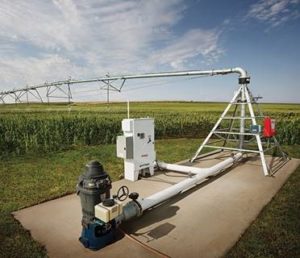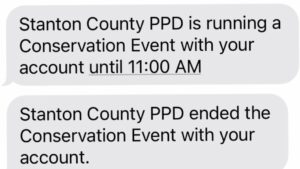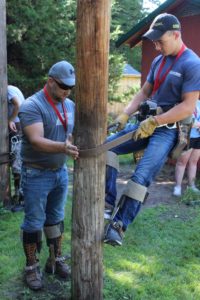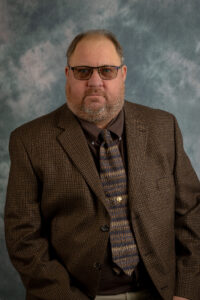Lineworker Appreciation
National Lineworker Appreciation is observed in April. It is out honor to celebrate the hard work, innovation and dedication of Electric Lineworkers!
Being a lineworker may not be the most glamorous job, but it is absolutely essential to the life of our community. Working near high-voltage equipment requires specialized skills, experience and an ongoing mental toughness. We especially recognize our lineman here at SCPPD.
Jerett Rolf – Maintenance Foreman
Lukas Litras – Apprentice Lineman
Matt Hoferer – Assistant Operations Manager
Anthony Lund – Journeyman Lineman
Jackson Reed – Journeyman Lineman
Don Dubas – Operations Manager
Luke Renter – Journeyman Lineman
Tom Blain – Lead Lineman
Korbin Voecks – Apprentice Lineman
Mike Larson – Construction Foreman
Irrigation Updates
The 2024 season will begin soon!
Load Management contract were due back by April 1, 2024. If you have still not turned your contract in, we will still need it! The contracts have changed to reflect an automatic renewal. The load management choice will continue every year forward, unless the customer requests a change. You will need to request this change before April 1 of each year.

To have a successful irrigation season, communication will be key. We value our customers and will help customers any way we can. Our text messaging service has had problems with customers not receiving any messages in the last years. We have worked with our I.T. department and managed to find a solution to correct it. This resolution was found halfway through irrigation season last year and remains effective for this year.
We will begin testing the communication system in May. You should receive a confirmation test that you will need to confirm in order to continue receiving text updates. Anyone who is not receiving the SMS Text messaging and would like to. Please contact our office.

Youth Energy Leadership Camp
Camp dates are set for July 22-26, 2024.
If you are a current 9th, 10th or 11th grade student and you are intetested in a FREE camp with excellent opportunties, contact the SCPPD office for an application, or check with your guideance counselor at school!
 LEARN LEADERSHIP SKILLS
LEARN LEADERSHIP SKILLS
Learn important leadership skills through small group and career development activities.
MAKE NEW FRIENDSHIPS
Youth energy Leadership camp is a great way to make lifelong friendships with students across Nebraska,
BE A LINEWORKER
Learn what it’s like to be an electric lineworker by climbing poles, riding in a bucket truck and more!
Director Spotlight
Director Darin Petersen
 Darin returns to Stanton County Public Power District to serve a new role. He retired as a utility lineman in February 2020 and he was appointed to the SCPPD Board of Directors in February 2024. Darin is eager to bring his personal perspective to this new responsibility and hopes to continue great things here at SCPPD.
Darin returns to Stanton County Public Power District to serve a new role. He retired as a utility lineman in February 2020 and he was appointed to the SCPPD Board of Directors in February 2024. Darin is eager to bring his personal perspective to this new responsibility and hopes to continue great things here at SCPPD.
Here is a little more information about Darin.
What is one thing you know for sure about SCPPD? All board members and employees are dedicated to reliablity and service for the customers of SCPPD.
What was you first paying job? Working for a farmer/neighbor in his hog barns and doing other agriculture jobs.
If money were no object, how would you spend the rest of your life? Spending time with my wife, kids, and grand children and taking them to places we never had time to go when I was working full time.
How do you define success at SCPPD? Working your way up through SCPPD and having the respect of your fellow employees and knowing you did your best for the customers of SCPPD.
What is one thing you can’t live without? A good pickup – always needing to haul something.
Tell us about your family. My wife, Beth, works at Stanton Health Center. My oldest son, Steven, and his wife have 3 children and live in Norfolk. My youngest son, Jason, and his wife live in Lincoln.
What advice would you give your younger self? Spend more time getting as much education as you can get. It will be important in the future.
What is one thing on your bucket list? Going to Augustana, Georgia and playing golf on the Master’s Course.
Describe SCPPD in 3 words. Reliable, Affordable, Proactive.




